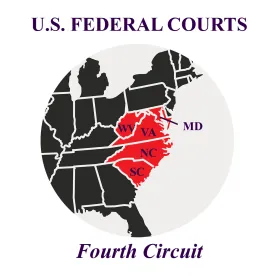A recent case before the US Court of Appeals for the Fourth Circuit addressed the issue of which persons qualify as “patients” of a 340B program participating entity (covered entity). Court-ordered filings in ongoing litigation between Genesis HealthCare Inc. (Genesis), a 340B covered entity, and the US Department of Health and Human Services, Health Resources and Services Administration (HRSA) provided insight into HRSA’s current interpretation of the definition of “patient” for purposes of determining covered entities’ eligibility to purchase drugs at discounted prices through the 340B program.
IN DEPTH
Based on its filings in Genesis HealthCare Inc. v. Alex Azar II (Genesis), HRSA acknowledges that its current interpretation of the definition of patient does not require that 340B-eligible prescriptions originate from a visit that is the result of a healthcare service initiated by the covered entity. HRSA also acknowledges that whether an individual is a patient of a covered entity should be evaluated under the patient definition guidance issued in 1996 (61 FR 55157-58), which states:
An individual is a “patient” of a covered entity (with the exception of State-operated or funded AIDS drug purchasing assistance programs) only if:
-
The covered entity has established a relationship with the individual, such that the covered entity maintains records of the individual’s health care; and
-
The individual receives health care services from a health care professional who is either employed by the covered entity or provides health care under contractual or other arrangements (e.g. referral for consultation) such that responsibility for the care provided remains with the covered entity; and
-
The individual receives a health care service or range of services from the covered entity which is consistent with the service or range of services for which grant funding or federally qualified health center look-alike status has been provided to the entity. Disproportionate share hospitals are exempt from this requirement.
An individual will not be considered a “patient” of the entity for purposes of 340B if the only health care service received by the individual from the covered entity is the dispensing of a drug or drugs for subsequent self-administration or administration in the home setting. An individual registered in a State operated or funded AIDS drug purchasing assistance program receiving financial assistance under title XXVI of the PHS Act will be considered a ‘‘patient’’ of the covered entity for purposes of this definition if so registered as eligible by the State program.
Background
In 2017, HRSA conducted an onsite audit of Genesis to evaluate its compliance with 340B program requirements. In its subsequent audit report, HRSA found that Genesis had failed to maintain auditable records for 340B program audit purposes and that it had dispensed 340B program drugs to ineligible individuals (i.e., drug diversion), both in violation of the 340B statute. Based on these findings, HRSA indicated that Genesis would be removed from the 340B program.
Genesis submitted a written response of disagreement to the audit report, arguing in part that HRSA based the diversion finding on components of the definition of “patient” found in proposed guidance that had been withdrawn in 2017. HRSA rejected Genesis’s contentions and restated its previous findings of ineligibility. HRSA explained that it based its diversion finding, in part, on the fact that prescriptions were written as a result of medical care initiated at locations not eligible to participate in the 340B program, such as physicians’ private offices.
Following HRSA’s refusal to reverse its audit findings and Genesis’s removal from the 340B program, Genesis sued the government in the US District Court for the District of South Carolina, alleging in part that the audit findings were arbitrary, capricious and not in accordance with the law. Genesis requested that the district court impose a temporary stay halting HRSA’s determination that Genesis was ineligible to participate in the 340B program.
Shortly after proceedings were initiated, HRSA and Genesis reached an agreement in which Genesis would be provisionally readmitted to the 340B program. Both parties requested that the district court stay the case until they resolved the matter themselves. After a year-long stay, the parties filed a status report stating that they were unable to reach a resolution. Genesis subsequently filed a motion for preliminary injunction and an emergency motion to stay, requesting that the district court prevent HRSA from enforcing its audit findings. Genesis also filed a motion to amend its petition. In its amended petition, Genesis sought declarative relief from the district court “concerning the plain wording of 42 U.S.C. § 256b(a)(5)(B).” Genesis requested that the district court provide clarification regarding the definition of “patient” for purposes of the 340B program. In response, HRSA voided the audit findings, closed the audit, removed the audit results from HRSA’s website, and stated that Genesis “has no further obligations or responsibilities in regard to the audit, including any actions to submit a [corrective action plan] or perform the actions outlined in the [corrective action plan] previously submitted.”
The government subsequently filed a motion to dismiss for lack of subject jurisdiction and mootness. The government argued that because the audit findings were voided, there was no final agency action under the Administrative Procedure Act for Genesis to challenge, and argued that Genesis sought an impermissible advisory opinion because there was no live case or controversy. Genesis argued that although the audit was voided in its entirety, Genesis was directly challenging the audit process used by HRSA and, more specifically, HRSA’s narrow definition of “patient.” The district court granted HRSA’s motion to dismiss, holding that there was no final agency action susceptible to judicial review and therefore it lacked subject matter jurisdiction to hear the case.
After its motion for reconsideration was denied, Genesis filed a notice of appeal to the Fourth Circuit.
Oral Argument
Oral arguments before the Fourth Circuit were held on March 9, 2022. Counsel for Genesis began by presenting the question of whether a case becomes moot when a regulatory agency vacates its decision to expel an entity from a program based upon a rules violation after the entity brings suit to challenge the agency’s interpretation of those rules. Although the Fourth Circuit began by inquiring into why it had jurisdiction over this case, the majority of the oral argument focused on the outstanding issue of the definition of “patient” applicable to Genesis and, more broadly, all 340B covered entities. Genesis’s counsel argued that Genesis deserves a declaratory judgment so that it can conform its behavior in compliance with the statute. Despite efforts by the government’s lawyer to steer the questioning to the issue of jurisdiction, the Fourth Circuit ultimately determined that the definition of “patient” required further review. The oral arguments concluded with the Fourth Circuit ordering both parties to submit supplemental filings to explain where the court can find guidance regarding the definition of patient that is currently applicable to Genesis.
Supplemental Filings
Genesis provided a 68-page document that included HRSA’s 1996 guidance on the definition of “patient,” FAQs released by HRSA, FAQs released by Apexus, a sample policy and procedure manual released by Apexus, a self-audit tool released by Apexus and a data request list released by the Bizzell Group.
HRSA’s supplemental filing, on the other hand, was three pages. HRSA acknowledged that its 1996 general guidance provides a “flexible” definition to apply across varied contexts but does not include language requiring that a 340B covered entity initiate the healthcare service in order for a resulting prescription to be filled with a drug purchased through the 340B program.
Analysis
The patient definition filings in Genesis, as well as the case itself, should be of significant interest to 340B stakeholders. HRSA’s supplemental filings provide the first clear statement from HRSA that the 1996 patient definition does not require that 340B-eligible prescriptions originate from a healthcare service initiated by a covered entity. Although HRSA did not go so far as to clarify the specific relationship between an individual, a prescription and a covered entity that is required for the prescription to be filled with a 340B drug, HRSA did suggest that the types of relationships that may be permissible are more varied and broader than those it previously endorsed.
Following this development, covered entities should look to the language of the 340B statute, as informed by the 1996 patient definition, to determine when an individual meets the definition of “patient” for 340B program purposes and which prescriptions for that individual are eligible to be filled with 340B-purchased drugs. Covered entities should consider the following questions:
-
What is the covered entity’s current policy for determining who is a patient of the covered entity?
-
Does the covered entity maintain separate policies for determining who is a patient for 340B program purposes and for non-340B program purposes?
-
Is the policy for determining who is a patient of the covered entity consistent with the criteria set forth in the 1996 340B program patient definition guidance?
-
What specific criteria are used to determine who is a patient of the covered entity?
-
What documentation or other materials are used to demonstrate that an individual is a patient of the covered entity?
-
What liabilities is the covered entity comfortable incurring for establishing a definition of patient that includes individuals who are receiving care outside of the oversight and control of the covered entity?





 />i
/>i

